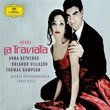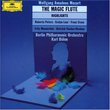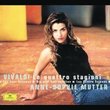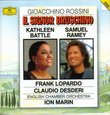| All Artists: Giacomo Puccini, Georges Prêtre, Monte Carlo Conservatory Concert Society Orchestra, Carlo Bergonzi, Giorgio Tadeo, Maria Callas, Renato Ercolani, Tito Gobbi, Ugo Trama Title: Puccini: Tosca (Highlights) Members Wishing: 0 Total Copies: 0 Label: EMI Classics Release Date: 6/2/1998 Genre: Classical Styles: Opera & Classical Vocal, Historical Periods, Modern, 20th, & 21st Century Number of Discs: 1 SwapaCD Credits: 1 UPCs: 724356666627, 724356666658 |
Search - Giacomo Puccini, Georges Prêtre, Monte Carlo Conservatory Concert Society Orchestra :: Puccini: Tosca (Highlights)
 | Giacomo Puccini, Georges Prêtre, Monte Carlo Conservatory Concert Society Orchestra Puccini: Tosca (Highlights) Genre: Classical
|
CD DetailsSimilarly Requested CDs |
CD ReviewsMost Underrated Recording Ever John Atherton | CINCINNATI, OHIO United States | 08/27/2004 (5 out of 5 stars) "First, please note that you can find the complete performance at almost the same price, so there's no need to settle for excerpts. This 1965 Tosca has been reviled by virtually every critic, including the most fervent admirers of Maria Callas. They'll steer you to the classic 1953 recording. I have both, but find myself more often turning to this one. Callas in 1953 had a healthier and more secure voice, but if she was shrill a dozen years later, her middle register and soft notes were, to my ears, lovelier and more touching. De Sabata's feverish conducting on the mono set is a memento of a genius who made too few recordings, but Pretre gives more breadth to this opera's stately Roman lines. By the same token, Bergonzi -- that prince among tenors -- is more elegant than Di Stefano, whose robust voice matches De Sabata's conception and Maria's earlier vocal (and physical) heft. The critics say Gobbi was sub-par in '65, but for me he is still... Gobbi. In sum, buy both if you can -- and if you like early Callas and Di Stefano, note that they were even more thrilling in Mexico City in 1952 -- but don't be surprised if you find yourself loving this neglected gem." Vocally problematic Emma de Soleil | On a holiday In Ibiza, then back to the UK for stu | 05/21/2004 (4 out of 5 stars) "This is Callas' very last opera recording in the studio, it was recorded to be the soundtrack of a Tosca-movie Herbert von Karajan wanted to do with Callas, Bergonzi and Gobbi. (He was to direct) Sadly the film was never made but the recording remains. Now I love Callas as much as anyone but after 1959, and especially after 1964, it is very hard for me to listen to her. Her voice, being used to the MAXIMUM ever since she was fourteen and cast as Santuzza in a student-production of her conservatory was almost completely burned out. The high B in Vissi d'arte isn't even hinted, it's a helpless shriek. The climactic phrase before it sounds rather squally and forced. The same goes for the final high note Tosca sings as she tells Cavaradossi that she murdered Scarpia. Yet there are some great details too. The even more intense and lucid phrasing, the perfect diction, the haunting drama and sincere passion. But after having heard her divine Tosca from 1953 one cannot help but mourn the treasure lost after only 11 years. If you're looking for a Tosca from that time, buy the one with Price instead. Yet, Callas' Tosca always had her virtues. And when she was singing it at the MET in 1965 for the last time she was in sensational form, as you can hear on the broadcasts and her final performance of Tosca, recorded live at Covent Garden in 1965. Bergonzi and Gobbi do not disappoint and are two of the main reason why this recording shouldn't be skipped. Not the best Tosca and definitely not Callas' finest hour but enjoyable nonetheless."
|

 Track Listings (11) - Disc #1
Track Listings (11) - Disc #1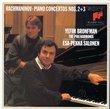
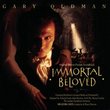
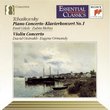
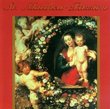
![Delibes - Lakmé / Mesplé, Burles, Soyer, Millet, Opéra-Comique, Lombard [highlights]](https://nationalbookswap.com/cd//m/63/8663/6008663.jpg)
